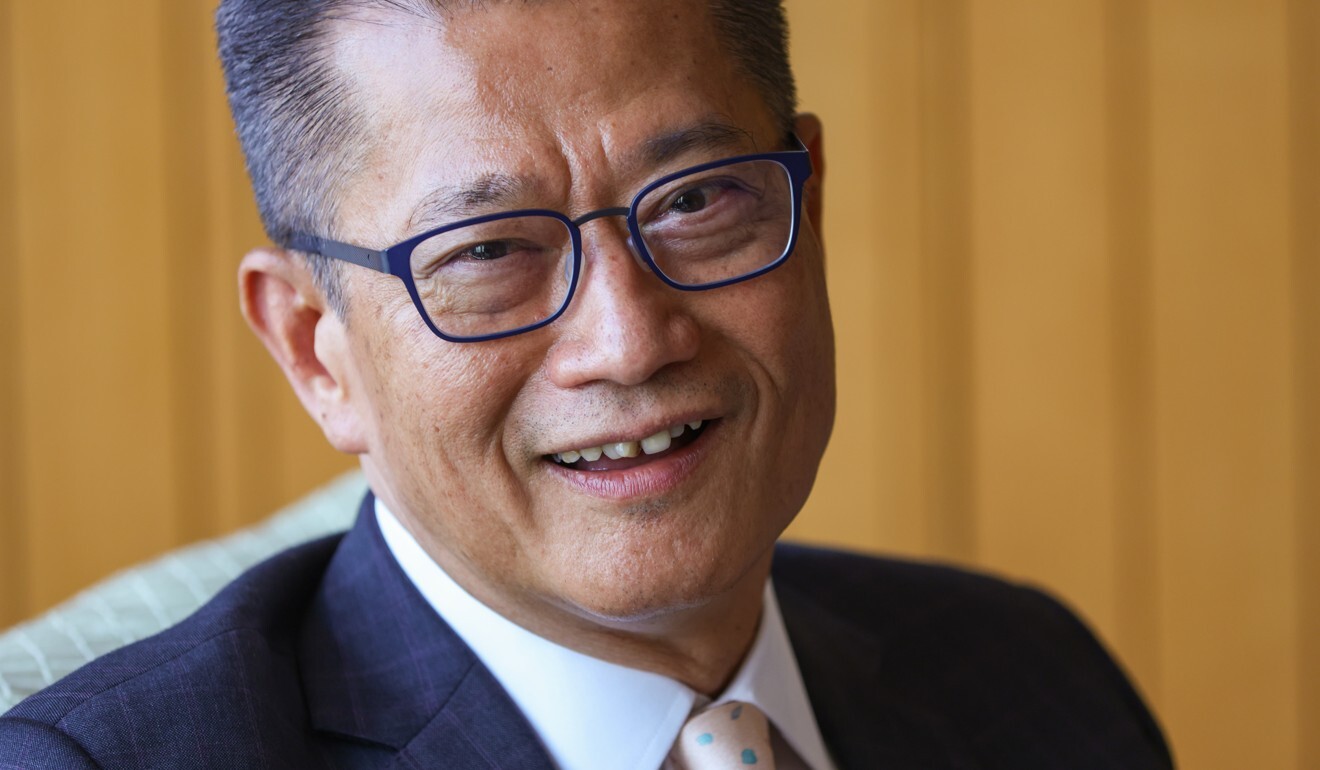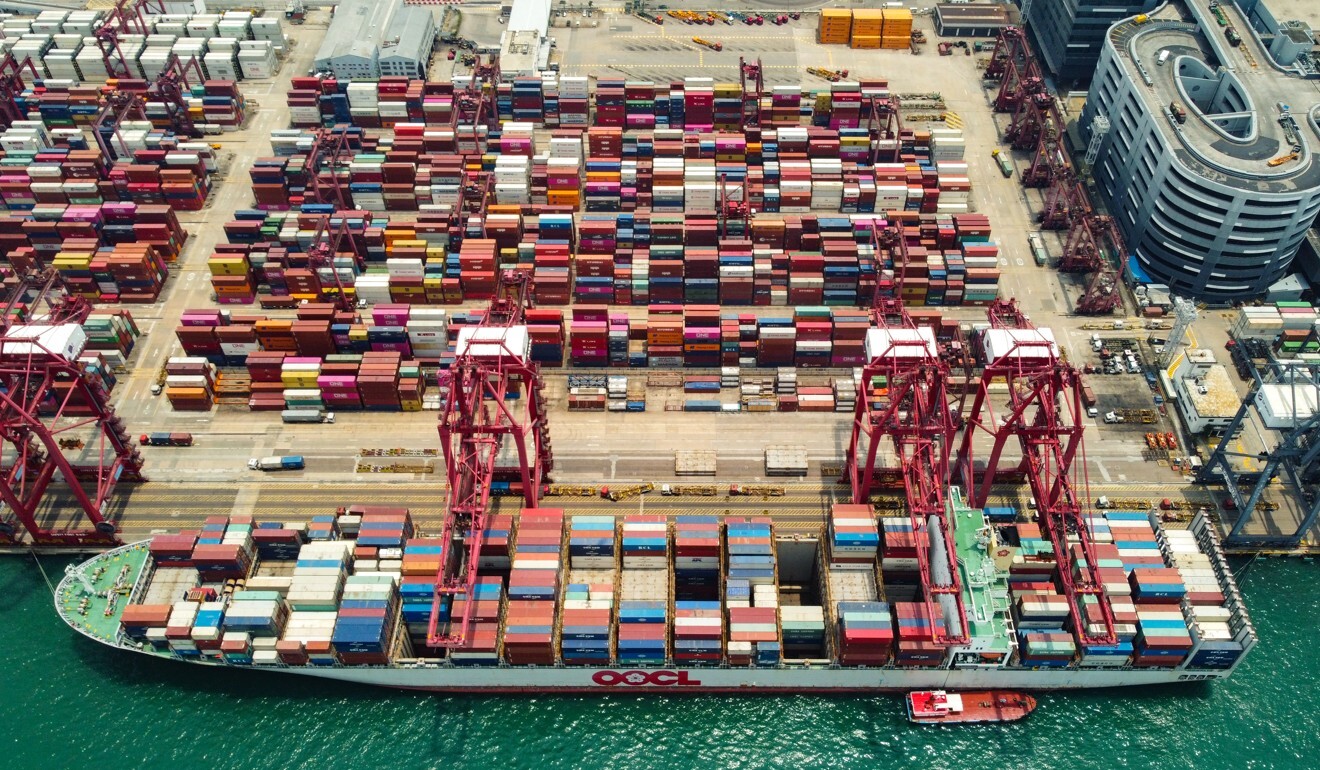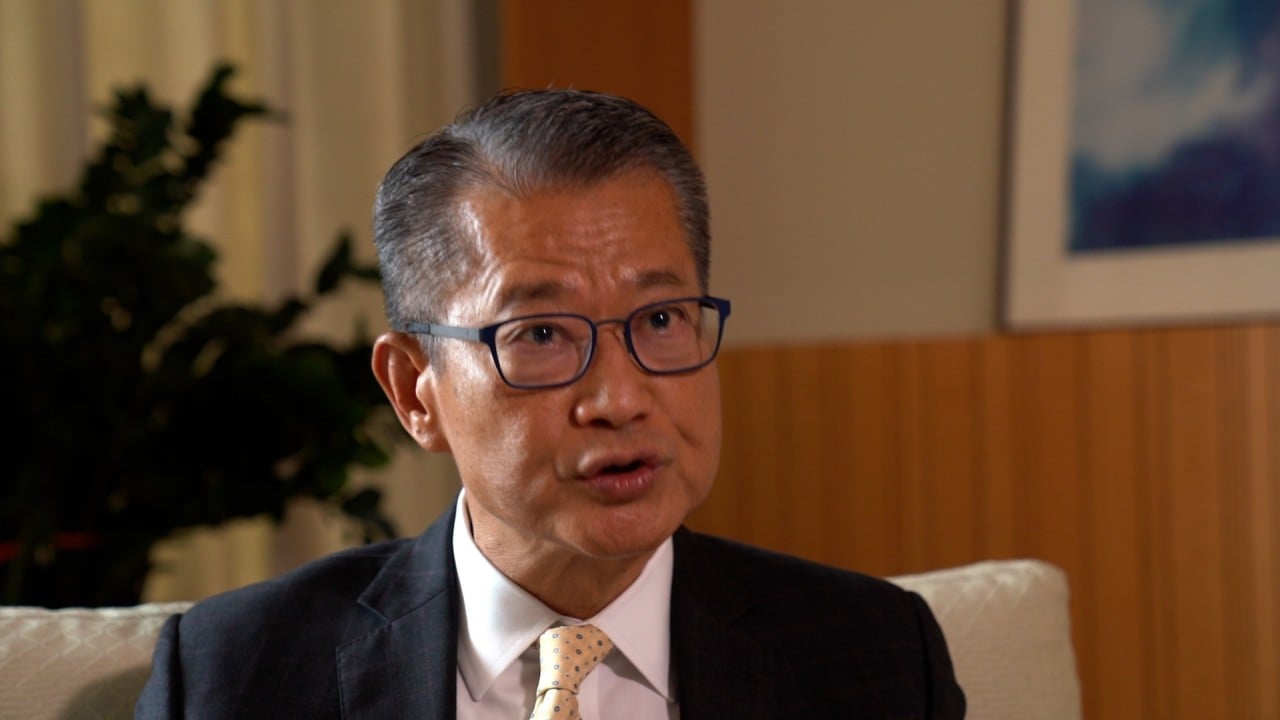
Hong Kong economy set to grow about 6.5 per cent in 2021 but not all workers benefiting, financial chief says
- City should hit upper end of projected range of expansion but average wage has fallen when inflation taken into account, Paul Chan says
- As one analyst argues, despite lower jobless rate, fewer people are working than a year ago, which is ‘hardly an improvement’
The minister noted that Hong Kong’s average wage rate increased by 1.1 per cent in June against a year ago, but after deducting changes in consumer prices, the amount actually decreased by 0.3 per cent.
“That shows that even though the economy has continued to improve, those relatively low-level workers have yet to feel the warmth,” he said.

But the economy rebounded by 8 per cent in the first quarter of the year and 7.6 per cent in the second, and the government estimated in August that GDP would increase by between 5.5 and 6.5 per cent in 2021.
Chan said current trends suggested annual growth would be “close to the upper limit of the estimated range”, which would be the largest expansion since the 6.8 per cent expansion recorded in 2010.
But he warned that the estimate for GDP growth for the third quarter, set to be revealed on Monday, would be lower than the figure in the first half of the year.
“From the trade and consumption indicators, Hong Kong’s economic recovery has become stronger in recent months, therefore I believe we will have also had good figures in the third quarter,” the finance chief said.
“But Hong Kong’s economic rebound in the first half of the year was much stronger than expected, and the base figure of the second half of 2020 was higher, so the year-on-year growth for the third quarter will be lower than the levels of the first half.”
While the economy would benefit in the fourth quarter from the spending boost powered by the government’s HK$36 billion (US$4.63 billion) consumption voucher scheme, growth in the city’s exports was expected to slow, the minister said.
Chan stressed that the recent adjustments to local anti-pandemic measures, aimed at allowing quarantine-free travel with the mainland, were key to bouncing back.

“This will provide important support and momentum to the city’s recovery … It will also offer convenience for various corporations [with] their businesses on the mainland,” he said.
Covid-19 and the Delta variant continued to spread around the world, posing an ongoing risk to the global economy which could lead to further inflation in Hong Kong, the minister warned.
Chan separately noted he had met a local youth group to discuss the future Hong Kong was offering to young people. At the gathering organised by the pro-establishment Hong Kong Youths Unified Association, he discussed issues such as housing, economic diversification and career development with about 30 young people.
“They might have doubts, but they also have expectations … I’m sure that as we stand united with young people’s positive force and will, Hong Kong will have better developments,” he said.
Not all analysts and observers shared Chan’s assessment of the state of the economy. Andy Kwan Cheuk-chiu, director of ACE Centre for Business and Economic Research, warned that the financial secretary might be overly optimistic in his outlook, arguing this year’s GDP growth might look impressive due to the effect of a low base for comparison.
“If our economy can grow as fast as 6.5 per cent this year, one can’t help but be puzzled as to why people’s wages are contracting,” he said.
Kwan noted that while the jobless rate had improved to 4.5 per cent for the July to September period, the size of the labour force dropped from 3.88 million to 3.84 million people in the same quarter compared with a year ago.
“The figures simply tell us that fewer people have jobs than a year ago,” he said. “And it is hardly an improvement.”

01:56
HK financial secretary Paul Chan on border reopening with mainland China and city’s economic future
Society for Community Organisation deputy director Sze Lai-shan also called for a special allowance for lower-income workers.
“Many people cannot make as much as before despite being able to get a new job,” Sze said. “To those people, their quality of living is actually declining.”
Steven Chu Hon-chung, vice-chairman of the Federation of Hong Kong and Kowloon Labour Unions, shared a similar view, saying: “Many workers face pay cuts or pay freezes. But things get more expensive. So, in fact, they are making less.”
He added: “The economy is starting to rebound and we hope the employers can offer a more generous pay rise so that workers can also share the fruit of economic recovery, instead of just being asked to share the employers’ burden during economic downturn.”
Chu’s federation earlier called for a pay rise of at least 6 per cent for workers in the coming year.
Kingsley Wong Kwok, chairman of the pro-establishment Federation of Trade Unions, agreed with the financial chief that many workers in the city had yet to benefit from the improving economy.
“Chan talked only about the symptoms,” he said. “The root cause is that the city’s economy is very focused on the financial industry. While the salary level of the sector might grow quickly, those working in tourism, catering, and other labour intensive sectors remain poor.”
If the government was truly concerned about all workers, it should take the lead in increasing the wages of its contract staff so they can live with dignity, he argued.
“Many of their wages are almost as low as the statutory minimum of HK$37.5 [US$4.82] per hour … we propose the government pay them a living wage of HK$55 per hour,” Wong said.


